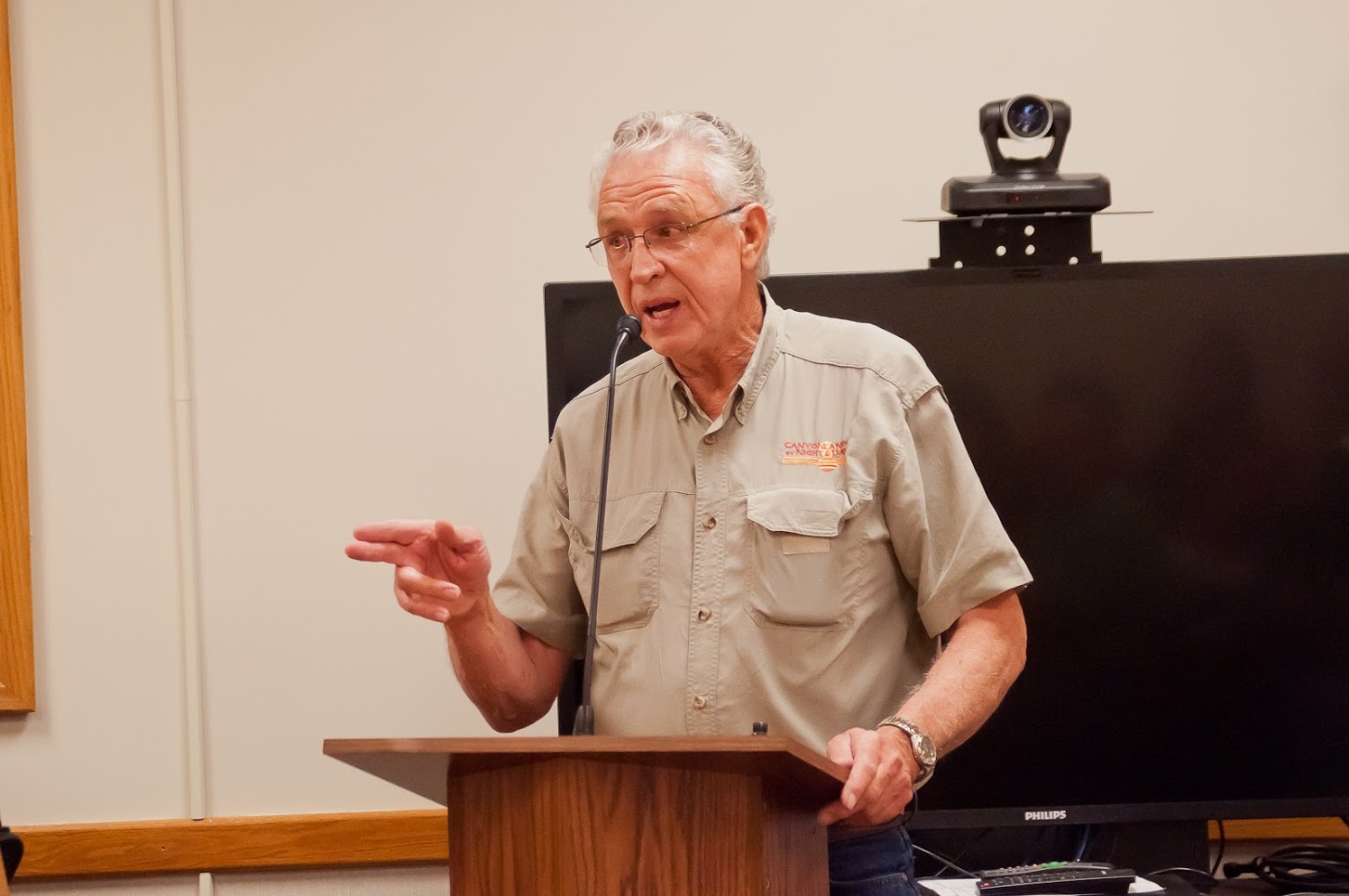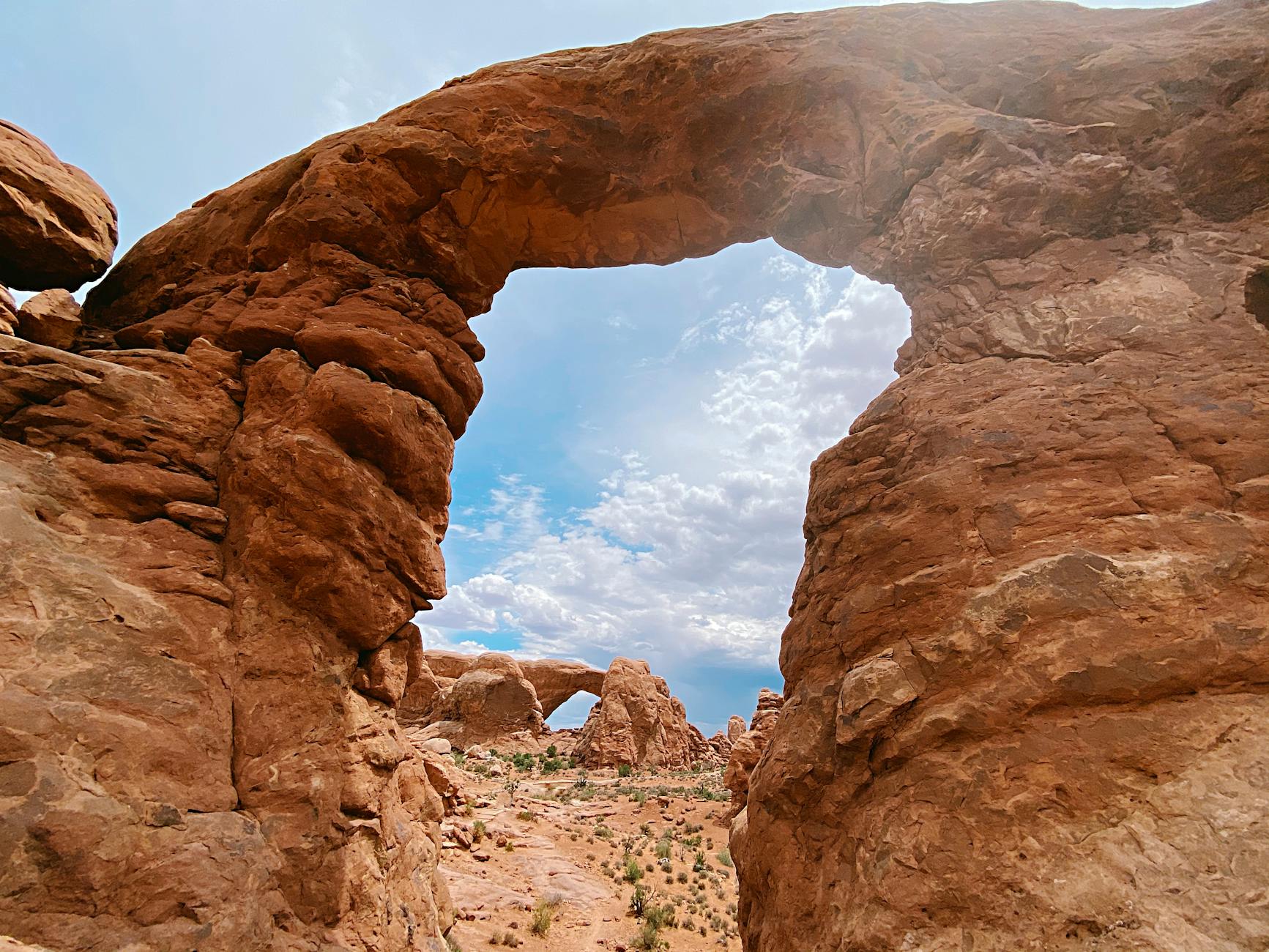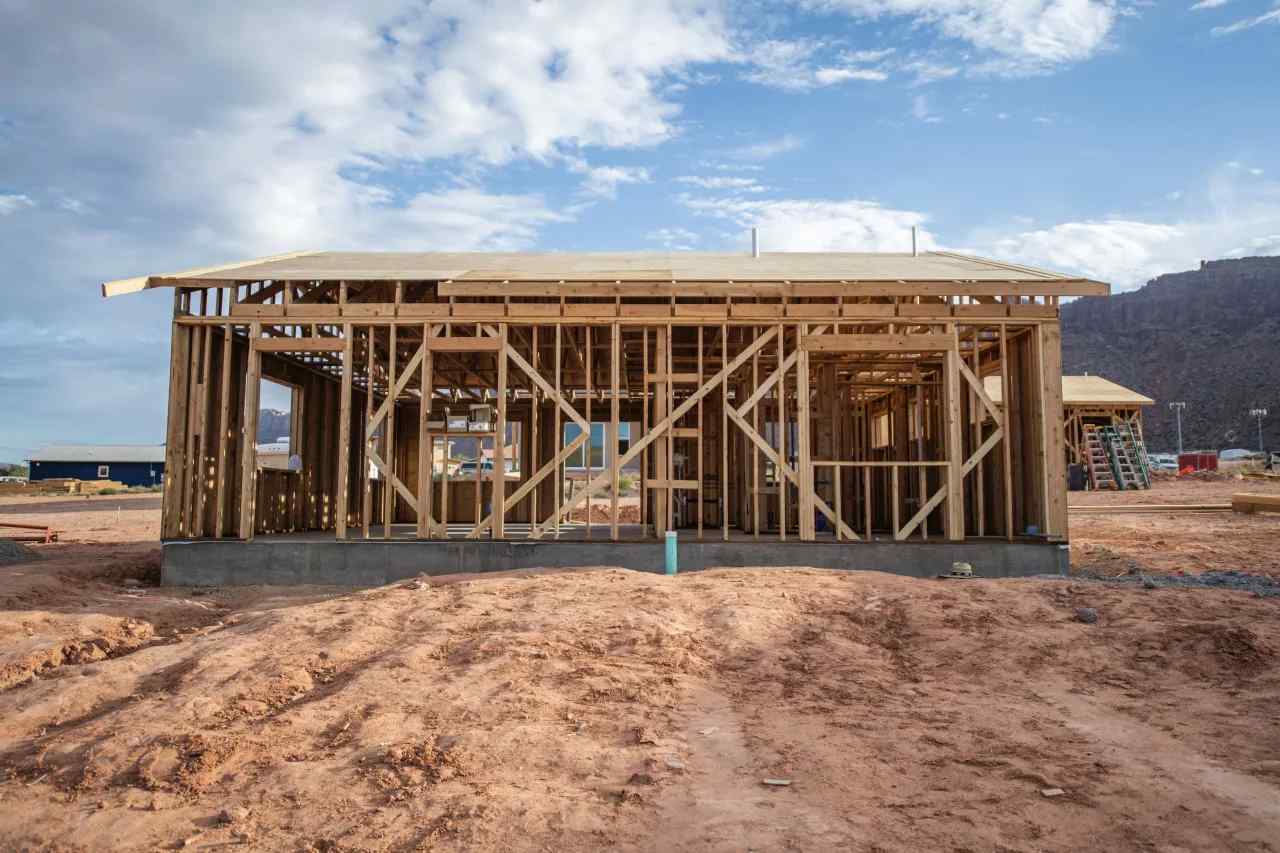Just hours after hotel owner Colin Fryer referenced “war” with Grand County Council member Chris Baird during a contentious public hearing, Baird resigned from the position he’s held since January 2015.
In his resignation letter, Baird stated that “his vision for this community seems to have fallen out-of-line with the community’s vision.” He also cited obligations to his family, noting that he only has a few more years left to spend with his kids before they are “all grown up and gone.”
“And so, I’ve made the decision that it is more important for me to spend the next one and a half years prioritizing my family rather than becoming an anchor against the direction that this community wishes to go,” he said.
The public hearing centered around Baird’s proposed resolution endorsing legislative changes to the Utah code that governs how certain revenues from the 4.25 percent Transient Room Tax (TRT) can be spent.
Under the current law, two-thirds of the first 3 percent of revenues from the tax on hotels and other visitor accommodations must be used to establish and promote tourism, the film industry and conventions. The remaining one-third of that money can be used to mitigate the impacts of tourism and recreation.
Baird’s proposal would expand that list of funding uses to include higher education and a variety of economic diversification programs and objectives. It would also broaden the Moab Area Travel Council Advisory Board’s responsibilities to provide deliberation on economic diversification, in addition to the promotion of tourism.
In a written summary of the proposal, Baird noted that he was seeking an endorsement of a legislative change. In order for the changes to become law, he noted, the Utah Legislature would have to draft and approve a related bill.
Baird’s proposal was met with controversy at a June 6 public hearing at the county council’s chambers.
“Make no mistake, you’re taking on a mad resourceful group of enemies,” Fryer said in a written rebuttal to Baird’s proposed resolution.
Members of the tourism industry in Moab called Baird’s proposal “anti-tourism,” but Baird defended himself.
“Everything that I am proposing hinges on tourism being successful,” he said. “We (can) leverage our success in tourism to act as a springboard into economic diversification to provide more opportunity for our kids and working-class adults in our community.”
Fryer, who serves on the travel council advisory board, began his public comments by defending the tourism industry.
“Our tourism industry is healthy and alive and moving along just fine,” he said. “Tourism is the spawn of all our prosperity … What this proposal is about is taking the advertising money from the travel council and using it for something else.
“You make people think that there is this other, bigger cause that we can do,” Fryer said. “But, the cause that you are advocating for is taking our advertising money.”
Local business owner Dottie Byrd applauded Fryer and objected to the proposed resolution of reallocating funds toward job-training programs and higher education.
“All kids have to do to learn about a job is to walk down the street and apply for jobs in about 10 stores and they’ll have about five job offers,” she said. “They’ll learn more from every job they’ve had than they do with a four-year college education.”
Anasazi Realty Principal Broker and owner Randy Day spoke against the resolution and stated that, “We don’t have an issue here … What we have is a lack of vision, in my opinion.”
Day continued, “What these people work for at $15 an hour or $30 an hour with two incomes, we need to change our zoning, we need to get smaller lots. You want affordable housing? That’s a 10-foot-wide 1957 New Moon and it’s what we came to Moab, Utah, in with my family in 1972. A lot of kids I knew in school got a trailer house – that was the first house.”
Canyonlands Watershed Council Executive Director Jeff Adams expressed his support for the resolution because he thinks “we need to expand our ability to fund the whole range of impacts of tourism (including our) water supply infrastructure.”
According to Adams, records indicate water usage is 2.5 to 3.5 times higher during the peak visitor season than it is during the normal season.
“We’re looking at 2.5 to 3.5 times more impact from tourism on our commonly held infrastructure that we really need to consider, how are we going to pay for that,” he said.
Since the purpose of TRT revenues in question is to mitigate the effects of tourism to whatever degree possible, Grand County Council chair Jaylyn Hawks said she believes that most of the items placed in the resolution are appropriate.
“In my opinion, funding higher education infrastructure through the use of these taxes was probably too much of a stretch, with too many steps to take before making a case to include them in the resolution,” Hawks said.
When asked specifically about the relationship between higher education and tourism, Hawks said, “I don’t think the two are mutually exclusive.”
“(Utah State University-Moab) currently runs an undergraduate degree in tourism and hospitality management and Master’s degree programs in business administration and human resources,” she said. “In my opinion, additional skills training and education will never be a liability to an individual.”
Moab resident and parent of an elementary school student Holli Zollinger agreed.
“I am invested in my son’s education,” Zollinger said. “Higher learning infuses the educational cycle from elementary school and beyond. It inspires the community with new ideas and thinkers.”
Following the public comment period, Grand County Council member Curtis Wells provided a statement referencing his personal experience with boom and bust industries, and said that tourism has its own strengths and weaknesses, as well.
“It’s fair to say the county is not interested in hurting tourism and taking money away from promotion of tourism,” Wells said. “That’s the egg in the basket right now – that’s the economic engine. We need to be careful not to limit ourselves. Nobody is going to declare that we are going to stop just at tourism or just at natural resource development. We owe it to everybody to explore new opportunities so that we can be more balanced and reliable and we can do it without hurting other sectors.”
Wells encouraged more people to get involved.
“We need to have an honest conversation with ourselves as far as what are the real opportunities for economic development – but the key word is diversification,” he said. “I would hope everyone should feel that they don’t want Moab to turn into another resort town so that the workers have to live in Thompson (Springs) or La Sal and we have a situation on our hands that’s similar to Telluride. We can have a tourism economy that’s sustainable and successful.”
The hearing ended with Baird making a motion to leave the written public comment period open with no defined close and schedule a meeting with the travel council’s advisory board. Council member Evan Clapper seconded the motion and the motion carried.
After the hearing, Baird reiterated that he “believes a diversified future is a better future.”
He mentioned that he involved himself in local politics because he “wanted to help find a way to create more opportunity for (his) children and the community’s children.”
In response to Baird’s resignation, Hawks said she “was taken off guard and wasn’t really expecting it.”
“Chris is an extremely passionate, hardworking individual,” Hawks said. “It will be difficult to fill his position with someone who exhibits the same labor-intensive passion and who brings the level of knowledge and historical perspective as Chris.”
Generally, an appointment would follow party affiliation; however, according to Grand County Attorney Andrew Fitzgerald, the county has a grandfathered form of nonpartisan government that doesn’t exist in Utah code anymore.
Therefore, applicants for appointment can be within any party affiliation, even though Baird is a registered independent.
The county clerk’s office will release the dates of a five-day term where persons can submit themselves into candidacy. Following a vetting by the clerk’s office, a list of “properly vetted” candidates, who need to be residents and registered voters of Grand County for one year prior to application, will be submitted to Grand County Council, which will then have a five-day period to select and make an appointment. The appointed council member will serve the remainder of the unexpired 18-month term.
Attendees divided over Transient Room Tax spending proposal
Make no mistake, you’re taking on a mad resourceful group of enemies.
Written comments on the proposed resolution can be emailed to council@grandcountyutah.net, or mailed to: Grand County Council, 125 E. Center St., Moab UT 84532.





